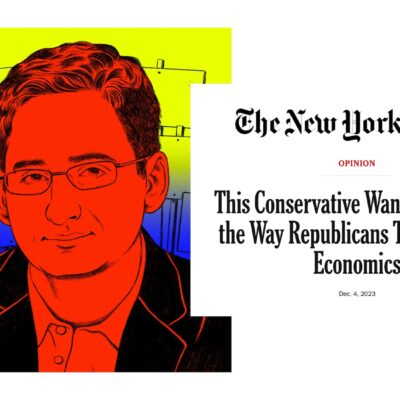
RECOMMENDED READING
Michael Watson’s rejection of collective bargaining belies a confusion commonplace in conservative conversations, which often condemn institutions of labor as imperfect without contemplating the plausible alternatives. For instance, Watson’s paean to “employee freedom” would seem to envision the humble worker meeting managers in the marketplace and haggling with them to arrange for desirable employment. If one offer is not to his liking, he can turn to another. If, after a few weeks, months, or years, on the job he finds himself mistreated, the exit is but a few steps away. Across the threshold, other, better opportunities await. By maximizing the labor market’s freedom, we can allow each worker to optimize his own results.
In the real world, which so rarely approximates the libertarian imagination, none of this is true. Individual workers, especially those lacking prized and differentiated skills, tend to suffer from having far less power than employers in the labor market. This ought not be dismissed as the “Bernie Sanders view”; it was Adam Smith’s. “Upon all ordinary occasions,” he warned in The Wealth of Nations, employers “have the advantage in the dispute, and force [workmen] into a compliance with their terms.”
Recommended Reading
This Conservative Wants to Change the Way Republicans Think About Economics
In an extended New York Times interview, Oren Cass discusses the importance of labor to conservative economics.
The Conservative Case for Organized Labor
Eric Levitz interviews American Compass’s Oren Cass about his vision for a pro-worker conservatism.
America Needs a Conservative Labor Movement
American Compass’s Oren Cass argues that a strong, reformed labor movement has unique potential to advance conservative priorities.












